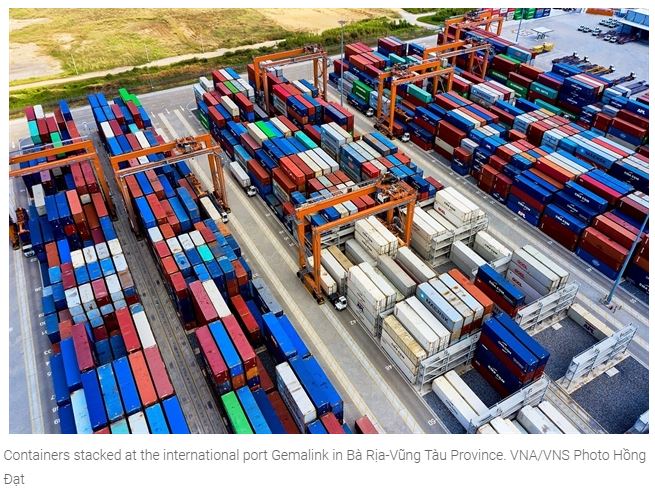Vietnam: Digital transformation game-changer in logistics industry
Việt Nam’s logistics industry grew by around 14 to 16 per cent annually in recent years. It is comprised of about 3,000 domestic firms and 30 transnational heavyweights, including DHL, FedEx, and APL Logistics.
HÀ NỘI — Digital transformation has become a crucial aspect for logistics firms to stay ahead of the curve amid the fast-paced business world.
Phan Văn Chinh, Director-General of the Agency for Foreign Trade, Ministry of Industry and Trade, viewed digital transformation as a game-changer for logistics firms in this time of rapid change.
He said logistics was picked as one of the eight priority industries in the National Digital Transformation Programme for 2025. The follow-up Decision No.221 laid down a course of action to improve its competitive advantages, which involves ‘research and technology transfers to accelerate digital transformation’.
According to Vietnam Logistics Business Association (VLBA), Việt Nam’s logistics industry grew by around 14 to 16 per cent annually in recent years. It is comprised of about 3,000 domestic firms and 30 transnational heavyweights, including DHL, FedEx, and APL Logistics.
The industry has always been at a cost disadvantages compared with those in China, Thailand, and Japan, because of inefficient port-related facilities. Firms in the industry are being left with no choice but to rely on digitalisation to narrow the cost gap.
VLBA Chairman Lê Quang Trung said 40 per cent of the firms had incorporated digital services into their daily operation, some of which involves transportation and warehouse management.
Trương Tấn Lộc, Marketing Manager of Saigon Newport Corporation, said the corporation had embarked on digital transformation by introducing ePort, a digital service that reduces the waiting time for vehicles by half and cut customs clearance by 2 minutes per container.
The corporation had also phased in AI-powered customer service bots to ensure a convenient and effortless experience for its clients.
Vietnam Post Corporation followed suit with the roll-out of Vmap, a real-time locating system used to automatically identify and track the location of clients, significantly improving delivery efficiency.
Phạm Anh Tuấn, Business Manager of U&I Logistics Corporation, said his corporation had integrated digital factors into various aspects of its operation, from human resources to customer service.
The digital transformation had enabled the firm to optimise its freight shipping transit time, reduce upkeep costs, and cut down on administrative expenses and billing errors.
Manager Lộc said digital transformation is not a one-man job that every firm can pull off on its own, but requires close cooperation to make way for transregional digitalised logistics systems.
He also underlined the importance of a shared digital database for all ports in Việt Nam, which could be connected to those of other ports in the world to improve their operational efficiency and competitive advantages.
Đặng Thị Bích Loan, Director of Mekong Logistics CO LTD, said customs authorities must lead the way in digital transformation, thus kick-starting the adoption of digital technologies among logistics firms.
Other experts said the integration of digital technologies into logistics would require extensive research and province-specific implementation that take time to produce their desired effect. —VNS


 Thailand
Thailand




